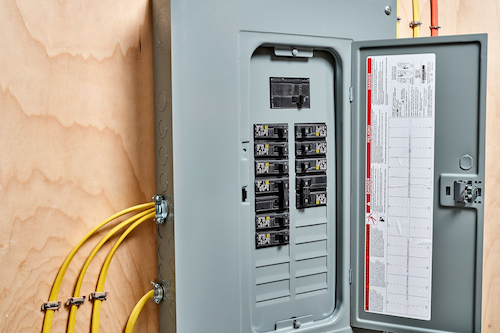Selecting the correct electrical circuit breaker for your home is crucial for safety and preventing electrical hazards. Circuit breakers are designed to protect your wiring from overloads and short circuits, automatically tripping and cutting off power when a fault occurs. To choose the right breaker, you need to understand your homes electrical load, the types of breakers available, and the specific requirements of each circuit. Incorrectly sized breakers can lead to overheating, fires, and damage to your electrical system. The first step is to determine the amperage rating required for each circuit. This rating indicates the amount of current the breaker can handle before tripping. Most general-purpose circuits in homes use 15-amp or 20-amp breakers. However, high-power appliances like air conditioners, electric dryers, and stoves require higher amperage breakers, often 30-amp, 40-amp, or even 50-amp. Consult the appliances user manual or the wiring specifications to determine its amperage requirements. Ensuring the breakers amperages are correctly sized to the wiring it is protecting is very important.
Understanding the different types of circuit breakers is also essential. Standard circuit breakers, or thermal-magnetic breakers, are the most common type used in homes. They detect both overloads and short circuits. Ground Fault Circuit Interrupters (GFCIs) are designed to protect against ground faults, which can cause electrical shocks. They are required in wet areas like bathrooms, kitchens, and outdoor outlets. Arc Fault Circuit Interrupters (AFCIs) protect against arc faults, which can cause electrical fires. They are typically required in bedrooms and other living areas. When replacing or adding circuit breakers, its crucial to ensure compatibility with your electrical panel. Electrical panels have specific ratings and configurations, and using incompatible breakers can lead to serious hazards. Consult your electrical panels labeling or a qualified electrician to determine the correct type and size of breakers. It is always wise to keep your main panel labeling correct and up to date. Finally, prioritize safety by always turning off the main power before working on your electrical panel. If youre unsure about any aspect of selecting or installing circuit breakers, its best to seek the assistance of a licensed electrician. They can assess your homes electrical system, recommend the appropriate breakers, and ensure safe installation. Improperly installed or selected circuit breakers could cause very dangerous situations.
How to Choose the Right Electrical Circuit Breaker for Your Home
Advice on choosing the appropriate electrical circuit breaker for your home, based on amperage, voltage, and the type of electrical load.

